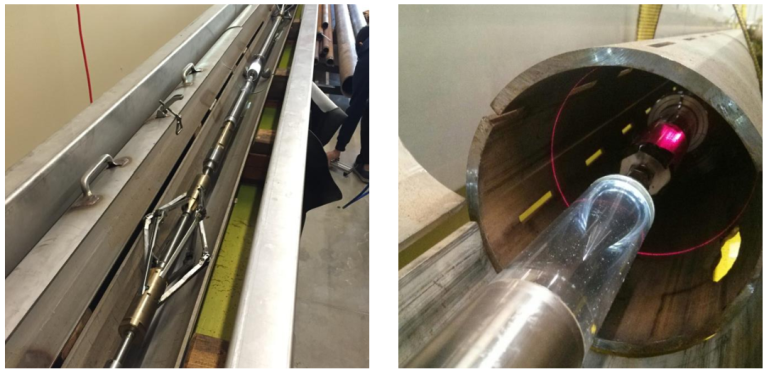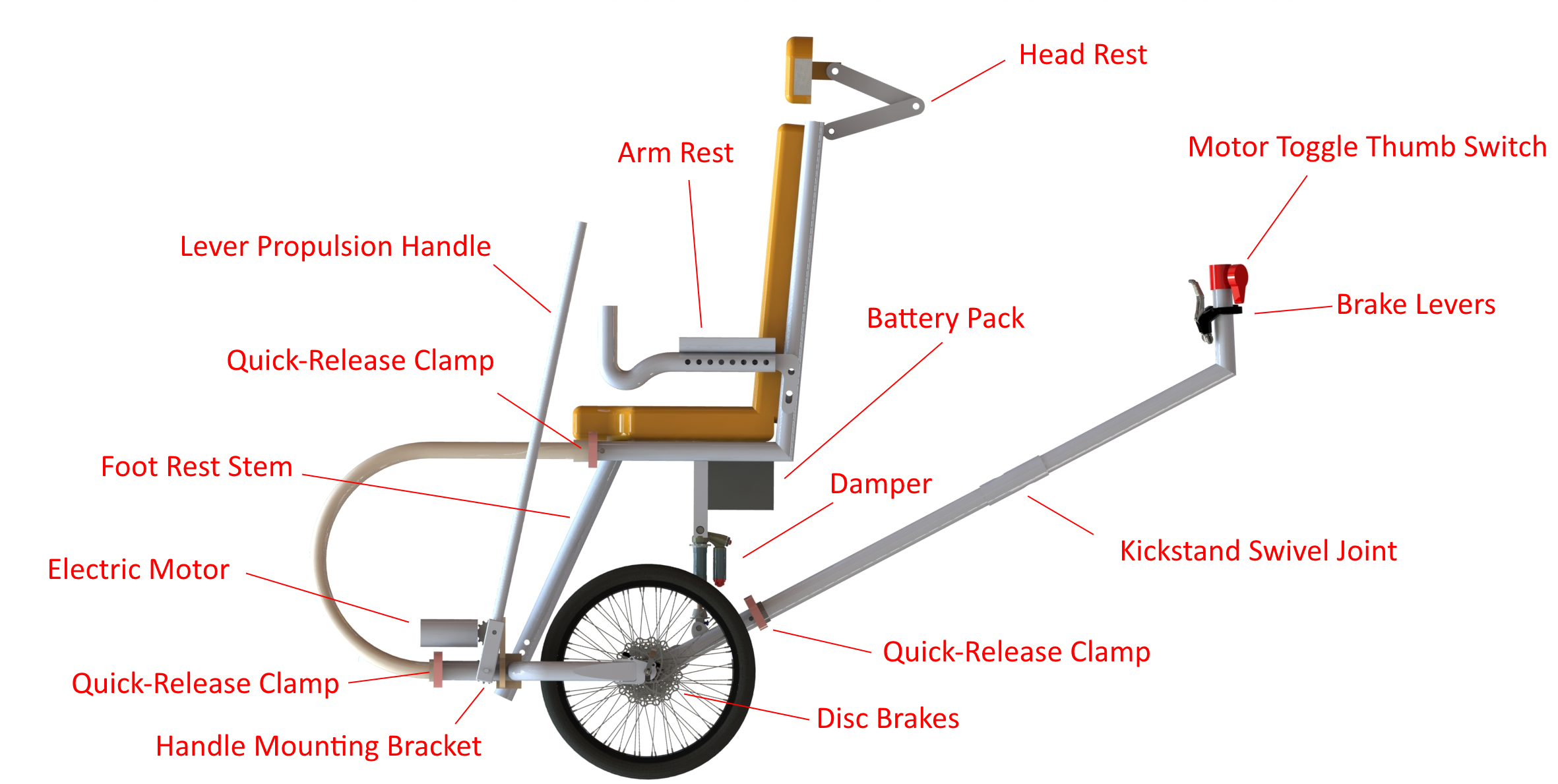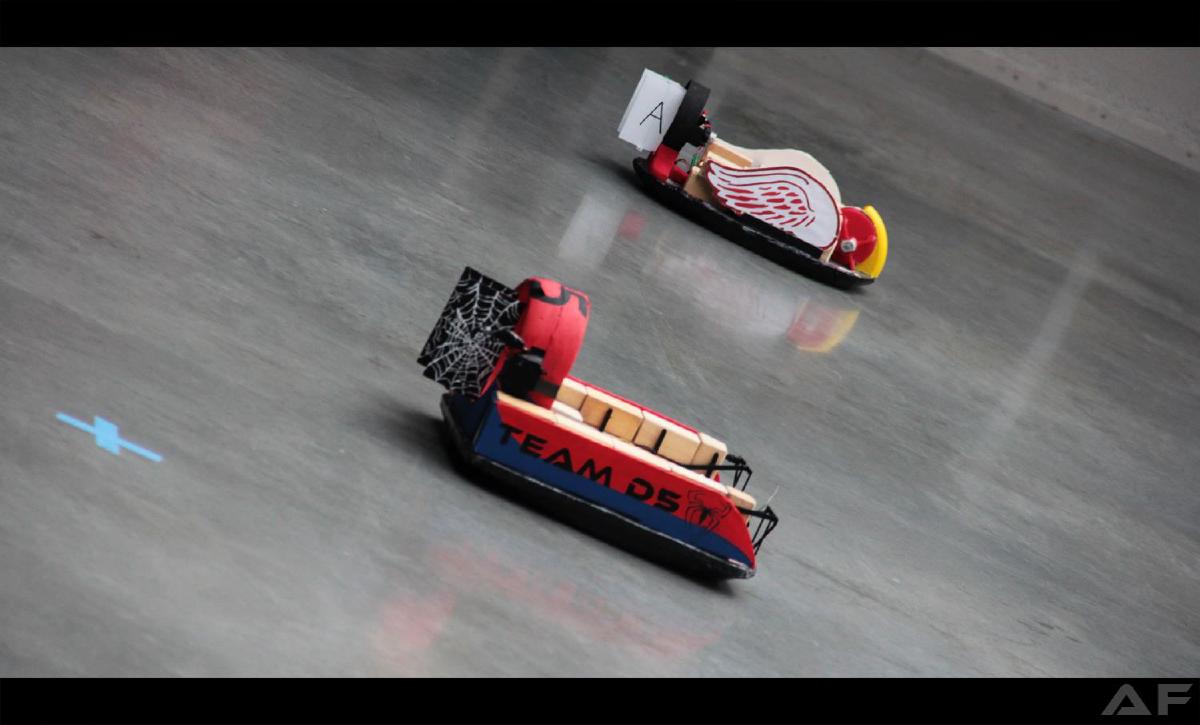Tag: #school (5 posts)
MECH 458: Capstone 3D Optical Well Imager
Introduction
Objective: Develop an optical scanning system to be used for generating 3D models of well liners and casings with sub-millimeter accuracy.
How: As a team of five mechatronic and mechanical engineering students, we designed and constructed an alpha prototype of the optical 3D well imager.
Project Details
Requirements and Specifications
Optical
- Device must have a tolerance on distance measurement of 1 mm
- Device must have a camera circumferential resolution of 1.42°
- Device must have a 3D scan circumferential resolution of 1.42°
- Device must have an axial resolution of 1 mm
Mechanical
- Device must be submersible
- Device must fit in a 3.5” ID pipe
- Device must have a minimum operating velocity of 10 mm/s
- Device must be operable using the existing test apparatus
Design Overview
The final design of the prototype includes a camera module, laser module, and two conical mirrors. The basic functionality of the device is shown in the figure below. A red laser ring is generated by the laser module which is reflected by 90° on to the surface of the well casing. The camera’s vision is then reflected by 150° to capture the projected laser ring.
MECH 423: Mechatronics Product Design
Background: When a hard boiled egg is spun on a table, it rotates freely since the inside is completely solid. With a raw egg, the liquid yolk sloshes around and resists rotation. By using math and physics, we can analyze the rotational oscillation of an egg and determine the yolk consistency.
“If it’s worth doing, it’s worth overdoing.” - Jaime Hyneman
Objective: Design and build a device to determine how cooked a boiled egg is using non-invasive techniques.
MECH 328: TrailRider Design Project
Background: The TrailRider™ is a specialized device to provide accessibility to the wilderness for those with limited mobility. It is intended for a seated rider propelled and balanced by assistants.
Objective: Expand the range of both riders and assistants who can ride safely use the Black Diamond TrailRider™.
How: As a team of seven mechanical engineering undergrads, we explored a range of areas for improvement and developed a new design to incorporate these features.
MECH 223: Hovercraft Competition
Teams were given 3 weeks to research, conceptualize, test, and refine their hovercrafts to compete in a class-wide battle of speed, cargo capacity, and maneuverability.
Men in Massage: Research Paper
Originally written as a research paper for ENG 112 at UBC. Republished here for archival purposes.
Research Proposal
According to Tom Delph-Janiurek, a “mis-performance of voice” may be necessary in order to gain authority in specific interactional spaces by creating a display of control and assertiveness (277). He proposes that the vocal performances in teaching spaces adapt to their social roles of authority by opposing the hegemonic heterosexuality in voices and perform vocal features of “drag” without giving up their gendered identities, contributing to and disrupting the “heterosexing of [teaching] space” (277). In spite of his conclusion regarding voice as “drag”, he fails to thoroughly assess the aspects outside of vocal performances that also relate to the projections of gendered bodies such as embodiment. A performed gender role relies on the physical aspects of body language and gesture in addition to voice in order to create a complete portrayal of a sexualized identity.


